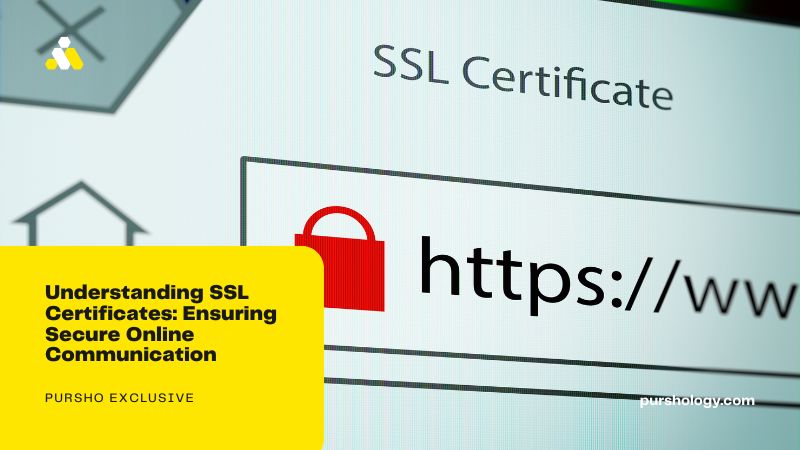In today’s digital age, ensuring the security of online communication is of paramount importance. One key tool that plays a critical role in safeguarding sensitive information exchanged between users and websites is the SSL certificate. Secure Socket Layer (SSL) certificates are cryptographic protocols that establish a secure connection between a user’s web browser and a website’s server.
The primasecure.com is an Africa-based IT company with offices in South Africa, Congo, and Switzerland. They are dedicated to narrowing the technology gap in Africa by simplifying the process of acquiring IT products. Prima Secure’s deep understanding of the regulations that align with African-based countries allows them to navigate complex legal frameworks.
What is an SSL Certificate?
An SSL certificate is a digital file that acts as a cryptographic key to secure the connection between a user’s browser and a website’s server. This certificate contains information about the website’s identity, including its domain name and the company operating it. When a user accesses a website with an SSL certificate, their browser and the website’s server engage in a process called the SSL handshake. During this process, the server’s SSL certificate is verified, and a secure encrypted connection is established.
Importance of SSL Certificates
Data Encryption: One of the primary functions of an SSL certificate is to encrypt the data transmitted between a user’s browser and the website’s server. This encryption ensures that any information exchanged, such as login credentials, credit card details, or personal messages, remains confidential and secure from malicious actors.
Trust and Credibility: Websites with SSL certificates display a padlock icon in the address bar, along with “https://” in the URL. This visual indication instills trust and confidence in users, as they know their connection is secure and the website’s identity has been verified. This is particularly important for e-commerce websites, where users share sensitive financial information.
SEO Benefits: Search engines like Google prioritize secure websites in search rankings. Having an SSL certificate can positively impact a website’s SEO performance, leading to increased visibility and higher traffic.
Protection against Phishing: SSL certificates prevent phishing attacks by verifying the website’s identity. Phishing sites often try to mimic legitimate websites to steal users’ personal information. An SSL certificate helps users differentiate between genuine and fake sites, reducing the risk of falling victim to scams.
Types of SSL Certificates
Domain Validated (DV) Certificates: These certificates are the simplest and quickest to obtain. They only validate the domain ownership and do not involve a thorough verification process. DV certificates are suitable for personal websites or blogs where minimal security is required.
Organization Validated (OV) Certificates: OV certificates provide a higher level of validation. The Certificate Authority (CA) verifies not only the domain ownership but also the organization’s details. This extra verification adds an additional layer of trust for users.
Extended Validation (EV) Certificates: EV certificates offer the highest level of validation. The CA conducts a rigorous verification process to ensure the legitimacy of the organization. Websites with EV certificates display the organization’s name in the browser’s address bar, emphasizing their authenticity.
Obtaining and installing an SSL Certificate
- Choose the Right Certificate: Determine the level of validation required based on the type of website. For e-commerce and business websites, EV certificates are recommended, while personal blogs may suffice with DV certificates.
- Select a Certificate Authority (CA): Choose a reputable CA to issue your SSL certificate. Popular CAs include DigiCert, Comodo, and Let’s Encrypt.
- Generate a Certificate Signing Request (CSR): This request contains information about your website and server. The CA uses this information to create your SSL certificate.
- Complete Verification: Depending on the type of certificate, you’ll need to go through verification steps. This can involve confirming domain ownership, organization details, and providing necessary documentation.
- Install the Certificate: Once verified, the CA will provide you with the SSL certificate files. Install these files on your server to enable HTTPS for your website.
Renewing SSL Certificates
SSL certificates have an expiration date, usually ranging from one to three years. It’s crucial to renew your SSL certificate before it expires to maintain uninterrupted security. Many CAs offer automatic renewal options to streamline the process.
Final Verdict
In an era where cyber threats are on the rise, SSL certificates play a vital role in protecting sensitive information transmitted over the internet. By encrypting data, establishing trust, and thwarting phishing attempts, these certificates ensure a safer online experience for users. Whether you’re running a personal blog or managing a business website, implementing an SSL certificate is a necessary step to fortify your online presence and prioritize the security of your users’ data.







